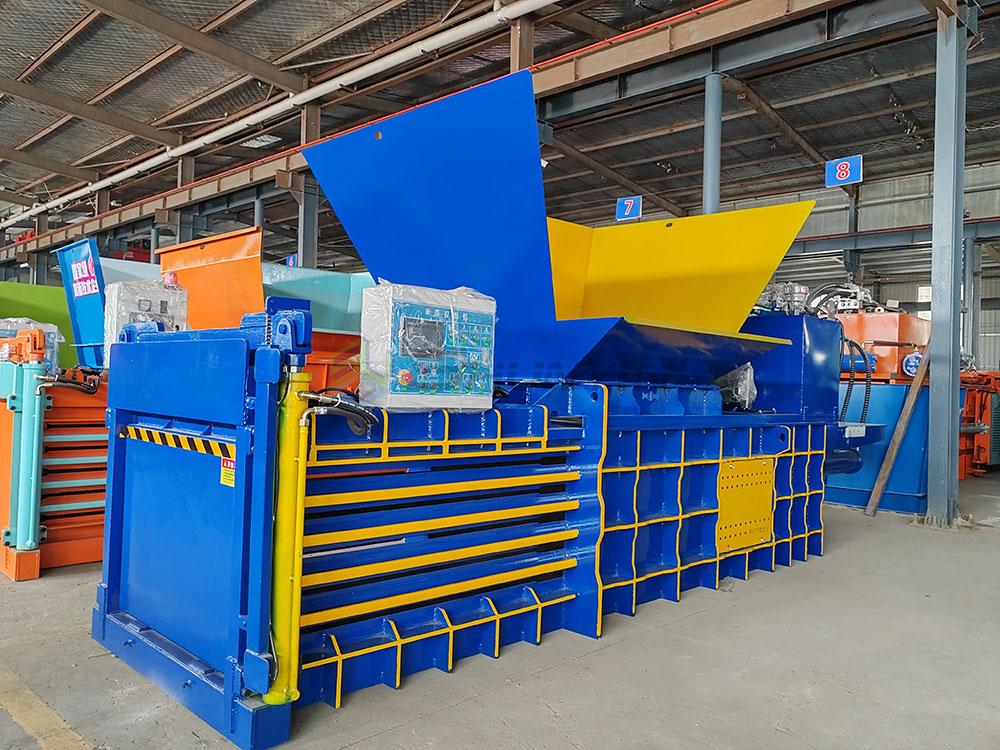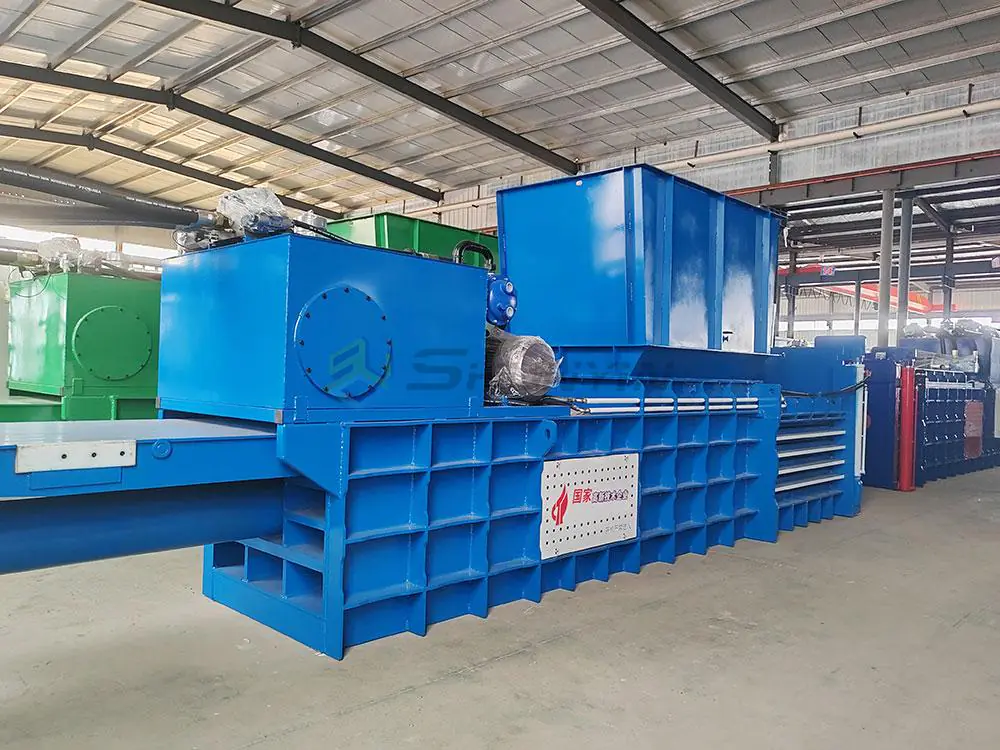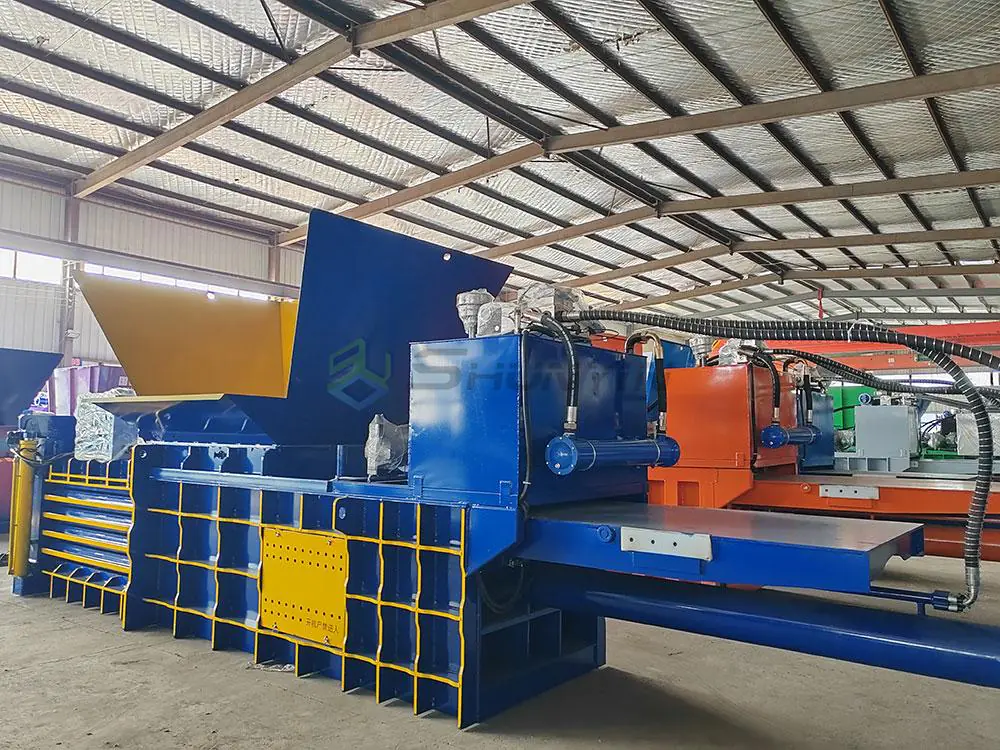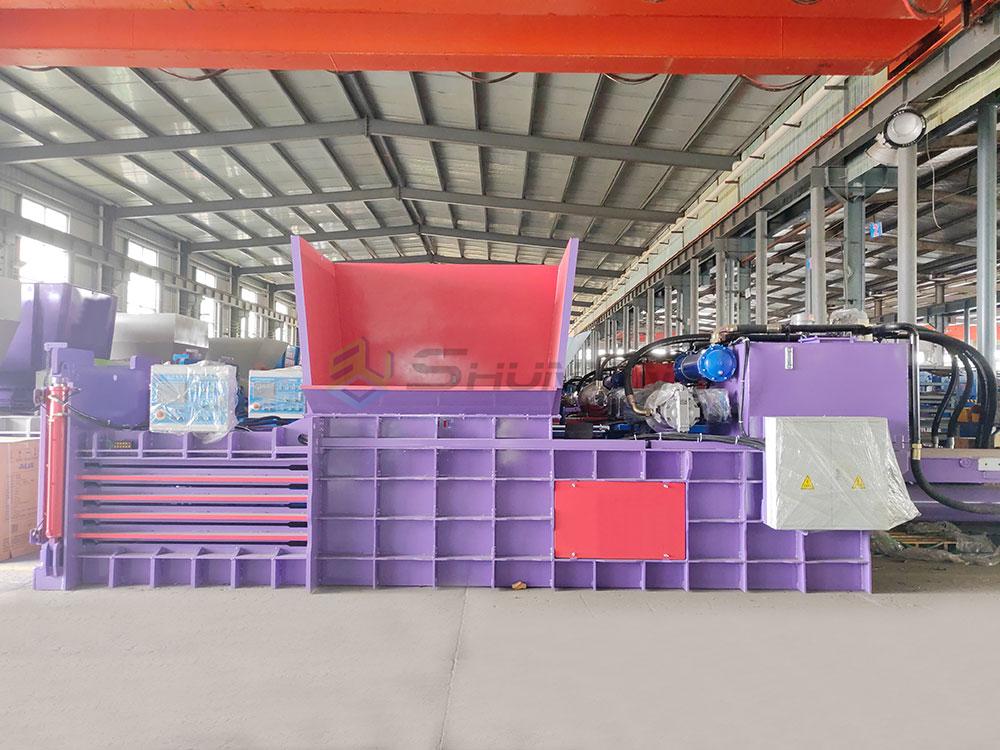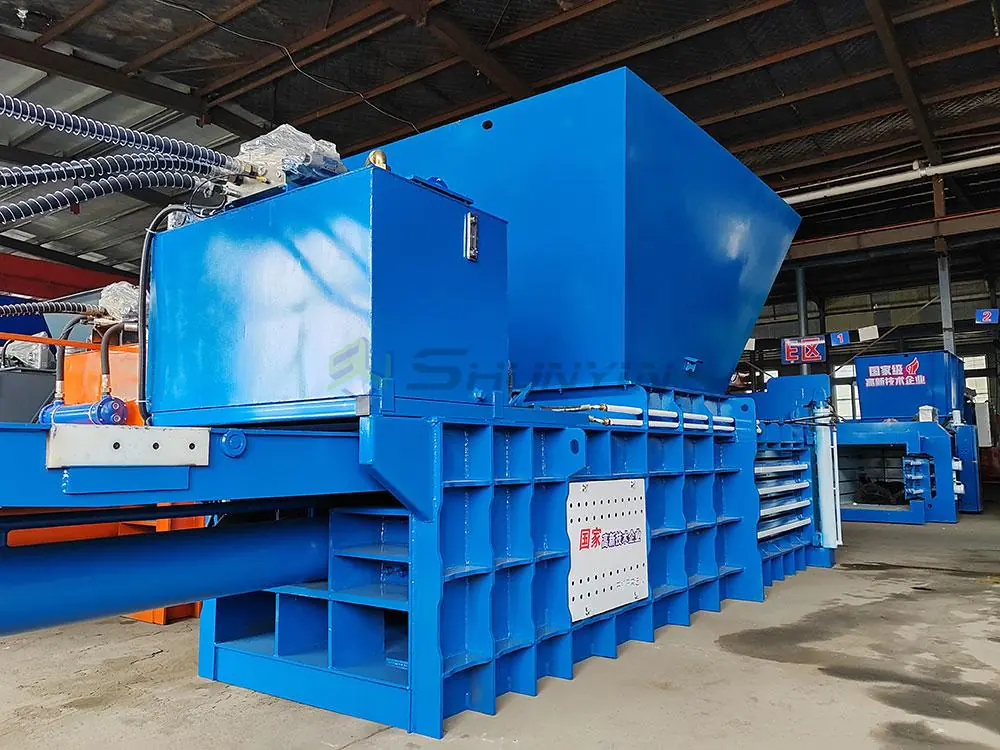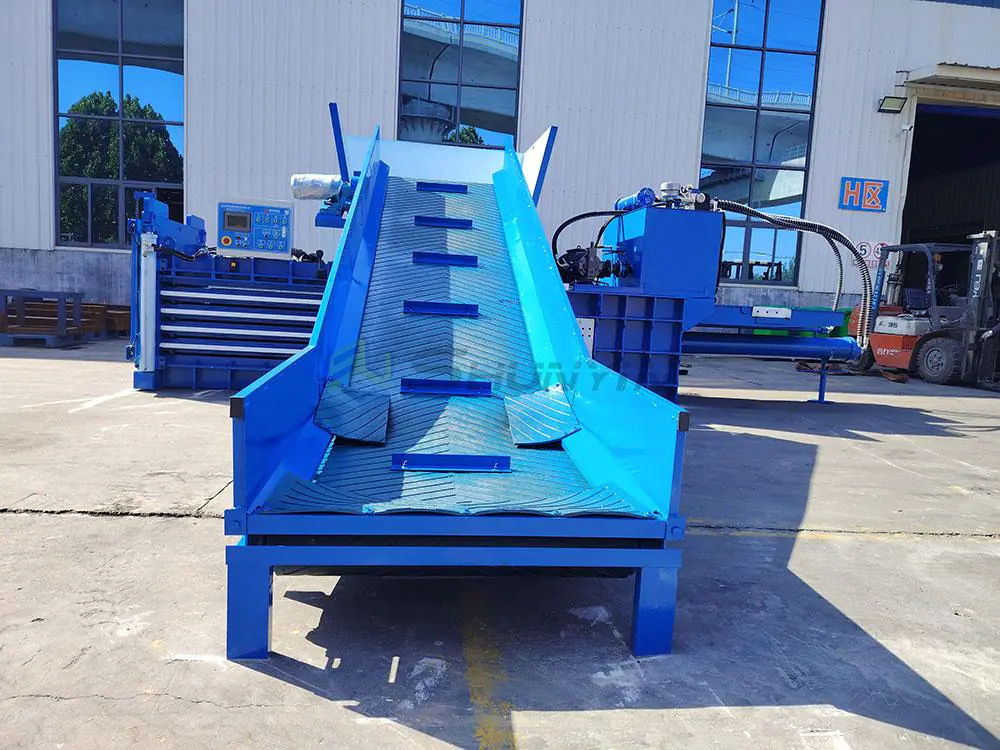Waste piling up faster than you can manage? Industrial operations lose $18,000 monthly on inefficient disposal. Our balers convert waste headaches into profit streams overnight—real numbers from our Toyota supplier prove it.
Industrial recycling balers compress high-volume waste like cardboard, plastic and foam into dense, transportable bales—reducing disposal costs while creating new revenue from scrap sales and optimizing warehouse space utilization for manufacturers.

Stop watching profits get hauled away. Discover how purpose-built balers transform waste liabilities into assets.
What is a baler in waste management?
See loose materials blowing across your yard? Industrial balers compress waste into compact blocks using immense hydraulic force. They work like profit presses—turning messy scraps into salable commodities.
A baler is a hydraulic compressor creating transportable waste blocks, serving as the core of industrial recycling by reducing volume up to 90%, cutting haul costs by 70% while generating resale revenue from compressed materials.
Beyond Basic Compaction
Modern balers function as profit centers through intelligent design:
Value-Added Features
- Material Recognition Sensors – Auto-adjust pressure for cardboard/plastic mix
- Barcode Tagging Systems – Track bale origin for ESG reporting
- Remote Performance Monitoring – Predict maintenance needs
| Function | Financial Impact | Case Study Result |
|---|---|---|
| Volume Reduction | Saves $5/ton hauling | Chicago plant: $216K/year |
| Material Recovery | Adds $25-75/ton revenue | Japanese factory: 14% profit boost |
| Labor Optimization | Cuts 3 FTE positions | Singapore warehouse: $150K saved |
Our SY-880 industrial models include integrated weighing systems—proving bale value immediately. One US distributor increased scrap revenue 32% through precise density control.
See your waste value? Share material photos: WhatsApp us direct—we’ll appraise your compressed potential.
How does recycling help in managing waste of the industrial sector?
Paying landfill fees for valuable recyclables? Manufacturing waste contains hidden assets—proper recycling turns disposal costs into profit centers while meeting ESG mandates.
Industrial recycling cuts waste handling expenses 40-60%, creates sales opportunities from baled materials, enhances sustainability credentials, and reduces resource consumption—transforming environmental compliance into competitive advantage.

The Industrial Recycling Profit Matrix
Our North American clients reveal three-tiered benefits:
Operational Savings Breakdown
- Transport Reduction: 73% fewer hauls
- Storage Optimization: 8x space recovery
- Disposal Fee Elimination: $120/ton saved
Recycling Revenue Streams
| Material | Unbaled Value | Baled Value | Increase |
|---|---|---|---|
| Corrugated | $45/ton | $90/ton | 100% |
| PET Plastic | $100/ton | $320/ton | 220% |
| HDPE Film | $75/ton | $210/ton | 180% |
Automotive suppliers using our balers report 22% higher OEM contract win rates due to verified sustainability metrics. Need recycling ROI proof? Snap your waste streams: WhatsApp us direct
What is baling in waste management?
Finding inconsistent bale density? Industrial baling methodically compresses materials using calibrated pressure cycles—converting loose waste into structured, dense blocks.
Baling is the process of hydraulically compressing recyclables into uniform blocks for efficient transport and resale, achieving volume reductions up to 90% while increasing material value through density optimization for scrap markets.
Precision Density Engineering
Effective baling balances four variables:
Compression Science Principles
- Time-Pressure Profiles – Adjusted for material brittleness
- Pre-Compression Chambers – Eliminate air pockets first
- Multi-Stage Compaction – Gradual density increase
| Material | Optimal Pressure | Target Density | Value Impact |
|---|---|---|---|
| Cardboard | 25 tons | 700 kg/m³ | +23% value |
| Plastic Film | 18 tons | 500 kg/m³ | +40% value |
| Mixed Textiles | 32 tons | 850 kg/m³ | +55% value |
Improper baling wastes profit: A Canadian recycler lost $78,000 yearly from rejected shipments. Our SMART-Density technology auto-calibrates pressure using material sensors.
Trouble with bale quality? Film your process: WhatsApp us direct—we diagnose remotely.
What is an industrial baler?
Your baler struggling with mixed materials? True industrial units withstand continuous, high-capacity workloads while processing diverse waste streams simultaneously—like paper-plastic-foam combinations.
An industrial baler is a heavy-duty hydraulic compression system built for 24/7 high-volume waste streams, featuring reinforced steel frames, intelligent material handling, and throughput capabilities exceeding 10 tons/hour for factories and recycling plants.

Enterprise-Level Waste Solutions
Industrial balers differ fundamentally from commercial units:
| Feature | Commercial Baler | Industrial Baler | ShunYin Advantage |
|---|---|---|---|
| Frame Strength | 8mm steel | 20mm steel | Earthquake-resistant |
| Cycling Speed | 90 sec/bale | 45 sec/bale | Servo-controlled hydraulics |
| Material Flexibility | Single-type | Multi-stream | SY-Hybrid chamber design |
| Daily Capacity | 3-5 tons | 25-100 tons | 300-cycle/hour models |
Japanese manufacturers use our SY-1800 systems for simultaneous cardboard and EPS foam processing—reducing equipment footprint by 70% while maintaining material purity.
Upgrading capabilities? Share operational hours: WhatsApp us direct—we match capacity to demand.
Conclusion
Industrial balers transform waste into revenue while optimizing operations—select robust systems matching your material volume and type.


